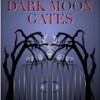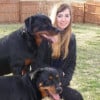Are HubPages "goals" promoting low-quality articles filled with fluff?
When I first started at HubPages, I wrote several Hubs of around 800 to 900 words. Now the goals for creating quality Hubs include 1250 or more words of content. I've noticed that some Hubbers seem to be padding their Hubs with irrelevant or superfluous content to hit these goals, and I admit it becomes tempting to do this after a while. There are some topics that just don't require more than 1,000 words. This doesn't mean that these topics are irrelevant or uninteresting. In fact, many of my shorter Hubs get a lot of traffic because they cover niche topics about which there may not be much information available.
Additionally, I seriously doubt that a 1,250-word recipe for lemon cake or pumpkin soup is going to be read from beginning to end the way a succinct instructional will be read. Just give us the recipe already. I've stopped clicking on recipes almost completely these days because of the trend that actually extends far beyond HubPages of giving a full history of the creation of a recipe before finally getting to the actual recipe.
I'm curious to know what others think.You are right.
The problem is most of HubPages' recommendations are based on site-wide averages, which are of limited usefulness to people who self-restrict to certain topics.
Another example besides recommended word count is that HP tells us to use full-width capsules because most of HP's traffic now comes from mobile. That's fine for HP as a whole, but what if your subdomain only gets 30% mobile traffic and the rest is wide-screen devices? If you have to choose between a layout that looks better on a wide-screen device and one that looks better on mobile, you'd probably choose the wide-screen format, which may include half-width capsules.I guess I've had my head in the sand concerning full-width capsules because I've continued adding a variety to make my Hubs look good on full-size devices. Glad to know I'm not the only one who has noticed problems with quality related to the goals.
I don't think so. The goals are guidelines, not requirements. When I write a hub, I make it as long as it has to be, and no longer.
I don't see a lot of fluff here. I do see a lot of new writers write a couple of paragraphs with some thoughts that are already all over the web and think they are done. They are aiming to satisfactory work, writing the minimum number of words. The goals help them know that they need to put more effort into their work. They need to aim for exemplary work.I agree that certain goals do help new writers focus on important steps in composing quality Hubs. However, I'm surprised that you claim not to have come across Hubs that would be far better pared down to fewer than 1,000 words. If you hop Hubs at all, I'm sure you'll find these. I stopped hopping after only 3 or 4 today because of this issue.
Of course, I will note that the emphasis on goals here does create better content than one sees at sites such as Bubblews. (Is Bubblews even still a thing?)
All my best,
MGYou are 100 percent right. I flag the two paragraph hubs all the time. People come here and write or copy a lot of the time a short two paragraph hub and when they have done 15 to 20 of these they post in the forums why am I not making money. They really have no ideal.
Let me tell you what makes money. It is made up of the below.
1. 1250 words of on topic text checked for spelling and grammar.
2. 3-5 Photos and now I'm taking most of mine.
3. Videos and again I'm now shooting and making money with them.
4. Add polls, call outs, quizzes, etc. ( Keep the average surfer on your Hub Page )
5. Write on Evergreen Topics when ever possible.
6. Join Facebook Groups that are on topic and drop a few links in there from time to time.
7. Post your Hub Page to your Twitter account.
8. Join on topic Google Groups and drop your links there from time to time.
9. Set up Blogs that link back to your Hub Pages and write 500 word blog posts that link back to your Hub Page. You have a feed on your blogs. Ping them every time you do a update on that blog.
10. Search for Blogs that are on your topic or topics and offer to do guest posts on them if you can add a link back to one of your Hub Pages.
11. Hunt for high traffic sites around the internet that make posts about your topic or topics. Ask them to do a post about the article you wrote on a certain Hub Page. I have gotten huge traffic for certain Hub Pages and do it over and over.
12. Never give up. Its not going to happen over night but it will happen if you keep it up. Its not easy making money on the internet in today's market but you can. Hell if I can do it anyone can but you have to be determined and willing to spend time and energy doing it.
Your not going to come here to Hub Pages and make it big over night but in time you could. 2 paragraphs on a popular topic is not going to do it. You need to build mini authority sites on a Hub Page that have the Wow factor. It has to be content that people are going to want to stick around and check out. If it really amazes them they will tell a friend or two.
If you notice I showed you all kinds of ways to get traffic with out Google. And there are many other ways to get traffic than just those ways I've told you about above. It will work if your determined.All hubbers can benefit if they follow your advice, crazyhorsesghost. They won't often meet a hubber with over 10 million views.

Regarding the extremely short hubs, I suspect many of them are written by people who do not have any real experience in the subject. How can a person write original content if they are relying on existing sources for their information? Writing with personal experience or extensive knowledge on a topic eliminates the need to create 'fluff'.You are so right. Write about what you know and tell a story as you do it and you won't need to fluff anything. You'll find it hard at times to find a logical stopping place. Write about what interests you and you should do well. This is a wonderful time of year with so many things you can write about. Good luck to all of you.
My hubs average about 500 words. That's all I really need to make my points. If a hub needs more than 750 words, I break it up into multiple hubs. I don't like reading anything online that is longer than 500 to 750 words myself.
I'm so glad to see that I am not the only one who is seeing a ton of fluff on HP as a result of the recommendations for longer hubs. I skim most hubs now because they are too long, too wordy and too repetitious. It's a shame because there are a lot of really good writers on this site but they are ruining their hubs trying to meet HP's ridiculous wordcount recommendation.Most of mine that are "How to Solve Blah Blah Blah" are around 500 words, but lately I pad them out with more example problems to bring them to 700 words. I definitely wouldn't pad them out by over-explaining the solutions. That would make the articles less helpful, not more! People want to be reassured that math is easy and that math problems can be solved quickly.
I assume with other technical subjects like horticulture, opening a how-to page with a 1000+ word article can make some readers think "Oh crap, this is way more complicated than I expected!"
On the other hand, articles that I pad out with more words do get more hits -- up to a limit. You could try adding a section of history or FAQ at the end of some of your shorter articles just to see if the extra words help.
I get the impression that Hubs are not meant to be read but simply browsed. Readers want quick info, stats, pictures etc.
They don't actually want to read anything these days. I think I should write a book LOL :-)I have ceased to worry about this. What I did in a new account I had to set up (for Squidoo lenses transfer) was write a few hubs, but ensuring they were at least 500 words.
If that's all the hubs need, why pad it? Traffic is very bad anyway, so . . .
And it's not against the TOS to write 500 - 600 word articles, or is it? I hope I'm not wrong
If you click the help link in the "Need Some Goals" box, it links to this Learning Center article:
http://hubpages.com/learningcenter/Need-Some-Goals
Though they do provide a good general target to shoot for on many Hubs, we hope that people will read that article and understand that they should focus on the needs of the reader and not simply add fluff in order to meet the goals.Hae Marie,
The idea is not to over-explain stuff or add fluff. If all is said and done with just 500 words, that's ok. However, there is a great need of exploring whether there are any relevant materials that could spice up your recipe. The more content you write, the more you're likely to use more popular keywords, some of which may be beyond your present comprehension until you see them on analytics. Splitting a long article into 2 sections is also not a bad idea especially if you can link them together.
The reason I'm saying this is because I've written a 700 word hub and that was it. But I later wrote another one which was more than 2,700 words long, with no irrelevant material.
Another reason why HP encourages you to write long articles is because search engines 'love length'. This eliminates the need for surfers to hope from place to another in search of info that they could have gotten in one place.Perhaps the trick is not fluffing the article, but combining several relevant articles together. For example, instead of an article on carving a pumpkin or cooking the seeds - make an article on whole pumpkin use. Gear the article to using every part of the pumpkin, which allows for several recipes and idea formats.
I have written for different publications and have studied journalism. As they say "Back in the day" we were taught to be concise and avoid long wordy articles. So I am inclined to agree with you, that in some cases, a 1250 to 1500 word article is windy and really does not demonstrate Knowledge or expertise. What it does demonstrate is a strong ability to not capture an audience. But when the instructions for writing hubs are given in very long and difficult to read rules that advocate long articles to demonstrate a persons competency then the invitation is out there for writers or would be hubbers to follow. The rules should be made in point form with the ability to access if needed more information on each point. Verbosity should be avoided. The hub of a wheel is the smallest part and the centre of the wheel and without the hub the wheel does no work. In my humble opinion a hub should be short and able to speak volumes. A hub should be a magnet pulling people in. Of course they have to be seen. This is of course only my opinion.
I've found a bucketload of hubs that could use a few 1000-5000 words.
If the premise of the title isn't met by the text, then something's wrong.
Most often I find an interesting teaser title and then the text just doesn't bear it out.
Some of you may like short articles, I like long ones.I think there is a place for both. You are exactly right that a title needs to match a hub. Unfortunately, I think that a lot of web content writers here and elsewhere put up a title that they think with attract traffic with SEO and then simply write about whatever they wish. I believe new heuristics will be making this practice less profitable, so that's good.
The important thing and my main point in asking this question is that Hubs need to be the right length to cover the topic. Many DIY or recipe hubs simply don't need to be this long. On the other hand, instructional hubs on photography, creative writing or automotive repair could easily extend beyond 1,000 words and not touch all pertinent information. The big question in that case is "Will that Hub hold the reader's attention to the end?"
Thanks for weighing in.
MG
I must confess that I feel the quality of my articles has gone up since I have started writing longer ones. When I look back at the 500-word articles from years back, they miss important points and I sort of dislike them quite a lot! Some, I almost feel like deleting if it wasn't that some readers still give me feedback that they find them helpful. I don't feel the need to add fluff to make an article longer, I just put myself in the reader's place and think what additional information may benefit him/her. So far, I always have come up with more info.
It all depends on how you pad them. You're obviously doing it the right way, adding more information that readers want.
Unfortunately some just add more words, polls, quizzes, etc without thinking too much about what they're really adding, all in order to meet the magical 1250 word count and check-box count for "extras" that show on the side bar of the editing screen.Exactly. The key is to increase word count without adding fluff.
An article should have an introduction and a conclusion. I see many short hubs that simply stop short without even a closing sentence.
Then, to add words to the body, you can think of anything else that your reader may want to know. For example, in a hub about how to boil an egg, instead of fluff telling you about the first, seventh, twentieth, and last time I boiled an egg, I could think about other things you would want to know. How to different types of eggs or altitude affect the boiling, suggestions for toppings, how to remove the egg from the water without burning yourself, how to shell it, etc. If I don't know how, I probably don't know what other things I need to know about the topic.
Don't worry, I don't have such a hub - I don't know how to boil an egg..
i think quality of content matters but while writing longer articles you are providing more information to reader.As for example you can add tips and dos and dons in general for recipes.some writing styles lend themselves to content that is short, brief, and to the point. Other times, the style is more conversational and interactive. Style will affect your content length.Different purposes will naturally mean differing length requirements
I also feel that your subject should be the deciding factor when it comes to the work count. Some recipes I see are really frustrating as the instructions have way too many basic information. Just give the recipe and if you feel that a person not so familiar with cooking needs some tips, add them after the recipe. I really do not need instructions on how to boil pasta!
From personal experience I also know that often I have limited time and would prefer an article that gives me the info I need in as few words as possible.All of you are right but it is not the point (or I missed someones comment)!
The point is that hubpages has rules according to google's guidelines. Hubpages make millions on ads and without search engines it would die.
So, in recent "panda" updates google is focusing on "high quality" content and and fights again "thin" content. As google is a machine, the more words = the better!
One very popular SEO expert got hit on his blog just because of it! His blog has "thin" content. He has thousands of readers but suddenly lost 50% of traffic. Why? Because his post were average around 250-300. But that 250-300 words were just enough to explain what is he writing about and thousands of people learn SEO from him.
But google likes long content full of rich media, videos, images, properly formatted.
Hubpages just follow googles rules! We didn't have summary but hubpages added it. It is now meta description for google. Better to write it and have sense than to take first 170 characters and split sentence on half.
The google added videos, images suggestions - for google. The more images the better. You add description to image - it is alt attribute in html. Why? Google likes alt attributes. You don't add it - then hubpages will conver image name to that and put in html code.
Hubpages profiles are subdomains, not subfolders ? Why? Because subdomain is something like new website so if someone starts spamming with low quality content the most likely it will not affect complete hubpages but just that subdomain.
Hubpages had score of 75 for dofollow links, it was easy to achieve, now it is 85. The point is link builders spammers will leave hubpages alone as it is too much work for few links.
Your hubpages is not featured = hubpages tells google "don't index this rubbish hub!"
So after all of this. 1250 words has not much sense, but must be done like all the other requirements. Otherwise, hubpages would be dead till now like 99% of article directories and similar sites - killed by google.
So the conclusion is - don't blame hubpages, blame google!If this were all true, my longer hubs would be garnering more attention from Google rather than less now that the update is in force. The fact is that I am seeing increased traffic from Bing and Yahoo and less from Google. My shorter Hubs (between 600 and 1000 words) are continuing to get hits simply because they are niche topics that aren't saturated on the internet at present.
I'm not saying that you have no legitimate points, but there is empirical evidence that longer content isn't always the best for SEO.I do not say that longer content is always better. Googles algo is complex and length is just one of the factors. What I say is that if everything else is the same article of 600 words will be better ranked then the one of 300 words.
If you do not put 4 but 2 images your rank will not be changed much. If you miss alt attributes it will not be a lot worse.
But when you count all those small things then you will gain a lot of you use all the powers you can
Anyway, my point was that all those hubpages suggestions are ther because of google.
HP is trying to encourage a more rounded approach to hub creation. Many writers are achieving this, with concise and positive articles, whilst some admittedly struggle to cover the bases. I don't think there's an ideal word count for an article online. Perhaps you could argue that most love short and shallow, but there are many who want in-depth and meaty.
I try to get to the evergreen status with most of my hubs and find that the word count seems to suit the subject matter. Some of them are under 1000 whilst others stretch out to near 3000.
For example, I wrote a travel hub on Brazil and wanted to give a full account of days out in Sao Paulo, so offered 20 options. Average of 150 words per option.
By the way I did some hopping recently and got quite a shock. Some of the attempts were abysmal! I can see now why HP recommend certain guidelines.They are guidelines only...
If you want to really know what you have to do look at the competition - what is Google ranking for your keywords/subject?
How can you provide the searcher with more value?I don't really pay attention to the word count as, like others, I just write until I've said enough! Most of my topics can be covered in 500-700 words and that's about where I stop.
It certainly depends on the hub. I have two hubs that are under 700 words. One's a recipe and the other is a movie review. Other than that, most of mine run around 3000 words or so.
I'm hoping people don't look up too many definitions of that word fluff.
You need a lot of fluff which you can pad out with pictures and Amazon ads. The balance of fluff should be no more than 98% of the content.
I regularly make 500 dollars a day by doing this and by riding a bicycle around the town shouting "Look at my Hubs you f------"
If you sign up under my TSU referral I will teach you how to make a hundred dollars a day even if you can't spell your own name.Lol! Perfect. You sort of killed many birds with one comment.
It must be frustrating for HubPages because they have the stats which tell them longer articles perform better, so they want us to do that, but it's a message that can so easily be misinterpreted.
I think the way it should be interpreted is: if you have an idea for a subject that needs less than 800 or so words, it's not suitable for a Hub - find another site, or your own blog, where it will fit.
Or, look carefully at it and make sure you're answering all the questions your reader may have. Could you widen the topic (without annoying your reader with irrelevant information, of course)?
Readers probably won't read the whole of a longer article but that's not the point. If they can't find the article, they can't read any of it, so first you have to attract the search engines - and longer articles will do that better than short ones, for all kinds of reasons.I agree with Marie. Who wants to read a 1250 word recipe. I don't need the history of the dish. I need to know how much salt to add. Sometimes I like variations people include.
Right? I have gotten to the point where I will include 3 or 4 recipes in a single Hub in order to get it long enough for a good Hub score, but I fear that decreases my article's searchability.
I just remember my parents' admonishment not to bow to peer pressure, or in this case, HP pressure. Since Google, Pinterest, Twitter, FaceBook and other traffic sources don't see hub scores, I write as many or as few words as I feel is necessary, add as many or as few photos as I feel is necessary and never, ever include polls, quizzes or videos just to increase my hub score.
The Stellar Hubs guidelines at the top of your Hub aren't designed primarily to increase score. They are there because HubPages' statistics show that "Hubs with these attributes typically get 300% more traffic".
You may be happy with your level of traffic now, but have you ever considered trying their suggestions on one or two Hubs to see if it does work?Yes. Those are my worst performing hubs. As was my sole Editor's Choice hub which has been switched back to my sub-domain where it is doing much, much better.
I understand why HP has set their standards, but they don't apply to all hubs. Take a look at the first page of Google results on gardening topics (my niche). The most popular sites have articles that are less than 1000 words. No videos. No quizzes. No polls. Few photos. Some of them don't even have photos, they have sketches. So I see no reason to write long wordy hubs cluttered with media and silly polls.
I think recipes are a special case, but it comes back to what I said - some subjects simply aren't very well suited to Hubs. Recipes being short by nature, they're better suited to a blog where each recipe is a post. Although I'm not sure how successful any recipes are likely to be, whether on HP or on a blog - it's such a highly competitive topic with so many big sites already operating?
I only know one person who wrote a lot of recipe Hubs - Mark Knowles. He was a highly successful Hubber here at one time, though he's moved on to bigger and better things now. He used to say that while his other Hubs got thousands and thousands of views a month, his recipe Hubs never did well due to the amount of competition. It would be interesting to know whether other Hubbers have managed to "crack the nut".I think Heather Says and Habee do well with their recipe hubs. Both of them have fantastic recipes. Heather has great Pinterest worthy pics where recipes are extremely popular.
The big question is what's their definition of "doing well"? One person may be delighted with two views a day whereas another person is unhappy with a hundred views a day.
I define doing well as improving on previous traffic. My HP traffic is down this year compared to last. It is less than it was two years ago.
Jesus.
Anyway... that is NOT doing well.
Related Discussions
- 168
HubPages earnings
by ShailaSheshadri 14 months ago
I am writing articles for this website since past 3 months. At present, I have 38 featured and published hubs. I have joined for Amazon and google Adsense program. Past two months I earned like very less amount, less than 1/2 dollar. If I continue writing and publishing at the rate of one article...
- 52
Is it always ill-advised to have an over 5000 words hub?
by Brian Leekley 11 years ago
In their teachings on writing stellar hubs, the HubPages staff has sometimes said that an ideal hub is 1,500 words long and has sometimes said that an ideal hub is 1,150 words long. Numerous hubs by hubbers on hubbing have recommended that a hub should be at least circa 400 to 500 words long, at...
- 90
Where next for HubPages?
by Paul Goodman 13 years ago
I know that many people don't like HP cracking down, but I personally am hoping that HubPages will continue to find new ways in 2012 to encourage the good writers on here and discourage the spammers and spinners - I really do think that it helps the site's reputation overall with Google and the...
- 69
Is it possible to make a living by writing on hubpages?
by Emilia 2 years ago
Hi,How feasible is it to earn 500$ + monthly from writing on hubpages? Is it possible from ad revenue alone? Or how should one go about mastering amazon links? (I've never had much luck with that aspect)Any tips/suggestions?I enjoy writing and my favorite niches are food, gardening, travel and...
- 361
I really think this Idled hubs idea is ridiculous
by Steve Andrews 13 years ago
When it was first introduced I was annoyed by it but made an effort to tweak my hubs to get them out of Idle status. Now, a whole load have got zzs against them again and many of them are hubs that at one point were very successful and even now still have scores above 70 or higher.One of the hubs...
- 44
How to be successful without being a prolific hubber - Best practices?
by Laura 12 years ago
Hello,I'm new to Hub. First a compliment. After coming off another content site, and researching others for a long, long time, it's a Godsend to come to a place that demands lengthy, quality work. I value quality articles over quantity, but here's my kicker.I want some money. I know it takes...
































